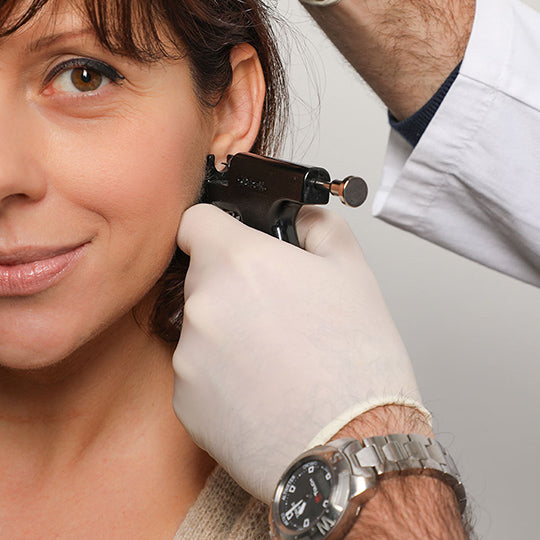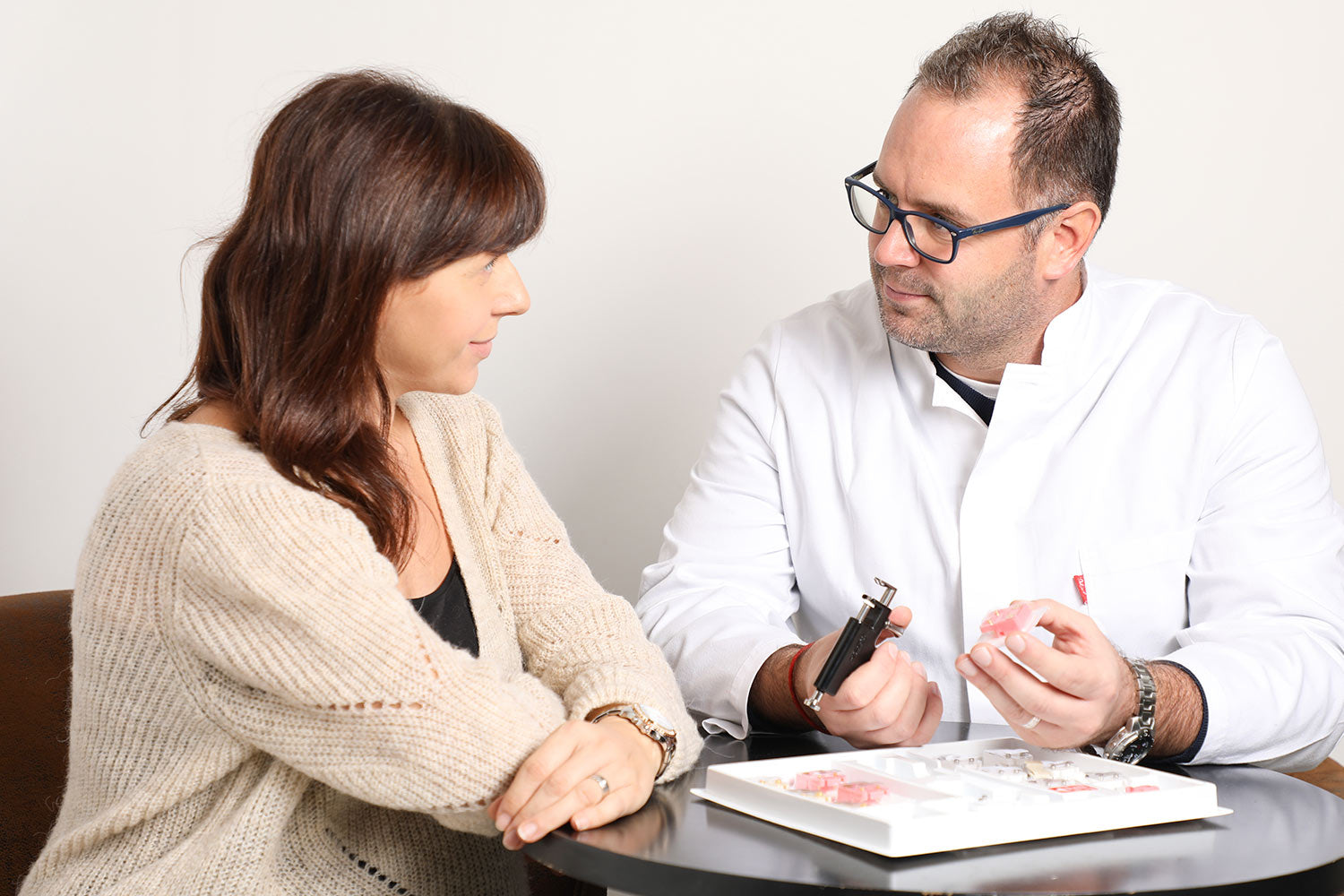How to prevent an infection after getting a piercing
Share

With summer here, you may be considering getting a piercing, especially a belly button piercing now it is warm enough to wear clothes to show it off. Although a piercing is not as much of a commitment as a tattoo, as it will normally heal up when removed, you still need to be careful to go to an experienced piercing practitioner. Apart from checking the facility is clean and well-lit you should also ask what equipment is used and how it is cleaned.
What is better gold or stainless steel body jewellery?
The majority of body jewellery, especially jewellery fitted when you first get a piercing tends to be stainless steel. Both gold and stainless steel are suitable and neither is better, so just chose what you like the look of the most..
Should I have a bar or a ring?
When you first have a piercing, you should always have a bar. This is because a bar is less likely to get caught or pulled and a ring carries a slightly higher risk of infection as a larger area is exposed and this will eventually be in contact with the open wound, until the piercing has healed.
How long will a piercing take to heal?
The time a piercing takes to heal will vary dependent on the body area and it is essential to keep the area clean, to prevent infection and rejection of the piercing. Clinisoothe+ Piercing cleanser and aftercare, liquid has really great antimicrobial properties, which help to prevent bacteria and infection. Although the chance of getting an infection is highly unlikely, Clinisoothe+ Piercing cleanser and aftercare, liquid also contains hypochlorous acid which will kill any bacteria, and stop an infection from becoming a serious issue.
Belly button piercings take the longest to completely heal. As long as you regularly clean your piercing with Clinisoothe+ Piercing cleanser and aftercare, you should not see any swelling or redness or feel any soreness, after 3 months. The average complete healing time for a belly button piercing is between 9 to 12 months. With all other piercings, excluding body bars and implants, the average complete healing time is between 3 to 6 months.
If you notice swelling or redness increasing after 3 days, or the piercing till feel very tender, contact your piercing practitioner. You should also continue using Clinisooth+ Piercing cleanser and after care.
What should you avoid after a piercing?
- Alcohol, caffeine and nicotine.
- Spraying perfume close to the piercing.
- Wearing tight clothes that will pull on the piercing.
- Showering with any scented shower products.
- Touching and fiddling with your piercing jewellery.
- Changing your piercing jewellery for at least 3 months.
What should you do after a piercing?
- Relax, sweat may irritate the skin around the piercing and make you more likely to get an infection.
- Make sure your bedding is clean.
- Wash your hands with non-scented, antibacterial soap before touching your piercing jewellery.
- Wear loose, cotton clothes that allow skin to breathe.
- Leave your piercing jewellery in at all times, even when completely healed piercings can still close up if they are left empty.
How should I clean my piercing?
Take care when cleaning your piercing, and avoid any products that are scented or contain chemicals that may irritate the skin as it heals. Clinisoothe+ Piercing cleanser and aftercare is a fantastic product, developed from scientific research, ideal to use to clean your piercing.
Not only will the antimicrobial formula, help to prevent infection, the neutral pH solution does not contain chlorhexidine, alcohol or petroleum and is non-toxic and non-cytotoxic. Clinisoothe+ Piercing cleanser and aftercare formula is also ideal for sensitive skin and will reduce inflammation and will help skin to heal quicker.
How will I know if my piercing is infected?
A minor infection may look red and produce discharge, although some soreness, redness and discharge is normal during the first month after having a piercing. Signs of an infection that needs medical attention include a smelly discharge, a sudden increase in pain and an increase in body temperature. Never delay seeking help if you experience any of these symptoms or suddenly feel unwell after having a piercing. The sooner an infection is treated with antibiotics the better chance you have of stopping it before it can make you seriously ill.
What can cause a piercing to be rejected?
Apart from an infection, a belly button piercing may be rejected if you either loose or gain a significant amount of weight. Constantly fiddling with or anything that pulls hard on your piercing may also lead to excess scar tissue building up and the piercing eventually being rejected.
How do I get my piercing to heal up if I don’t like it?
If you decide you no longer like the way a piercing looks and want the hole to heal up, remove the jewellery and keep the area clean with Clinisoothe+ Piercing cleanser and aftercare. The non-cytotoxic solution will aid healing and may also help to make the scar from the piercing less noticeable. Most piercings will heal up; however, this can sometimes take years, and although it is unlikely a piercing hole will be obvious it is best to make sure you think you will like the way a piercing looks long term before having one.



